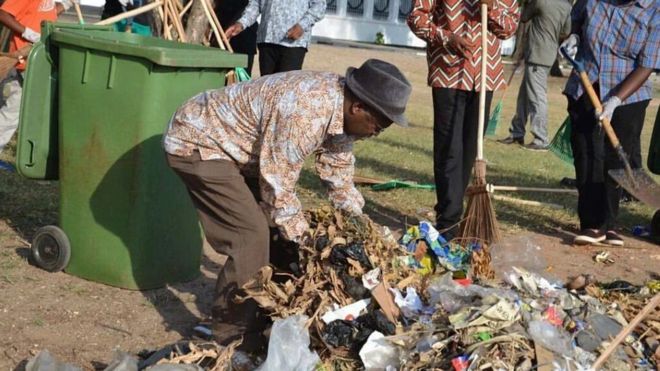When, for yet another time, President John Pombe Magufuli shelved the Uhuru Day celebrations, nobody’s shocked. For, this isn’t his first, and conceivably, the last time for him to do so as long his has always been development first. Since coming to power, ingeniously and unfailingly, Magufuli’s been conscious and frugal when it comes to spending public funds. Soon after hitting the ground running, President Magufuli stopped parliamentarians from outlaying at about Tshs.300 million which he trimmed down to 25million and the balance went to buy 300 beds and 600 bed sheets. Banning kujipongeza or self-congratulatory parties that’d have had charbroiled such a humongous amount unnecessarily, at least, contributed something precious to the paupers of our country. Ça y est! So, the first lesson we can get here is the fact that Magufuli’s practically always eyed on the development of the country first.
Further, Magufuli had Uhuru Day on ice after giving directions that the day should be spent on cleaning backyards. The Lusaka Times (Nov., 26, 2015) quotes Magufuli as saying that “it is so shameful that we are spending huge amounts of money to celebrate 54 years of independence when our people are dying of cholera.” The money saved was directed to repairing Ali Hassan Mwinyi road in Dar es Salaam, which, like any other roads and the city, was notorious for ruts and traffic jams. Apart from causing troubles and suffering for city dwellers, unrepaired roads cost a country economically. For, much specious time is wasted in traffic jams not to mention environmental and health dangers. For 57 years of our independence, if e at least, commemorated Uhuru Day in every two years, over 30 would have been repaired. And if our MPs would have deferred their self-congratulatory parties completely, methinks all of our hospitals and clinics would have had more than enough beds and bedsheets. Our schools would not have been running on empty as far as stationaries, labs, teachers’ emoluments and salaries and whatnot are concerned.
If we face and own it, how can a poor country like ours that depends on begging, grants and handouts commit such a sacrilege of misspending its taxpayers’ hard-earned money and remain practically prosperous and stable by any logical standard? Ironically, when a country spends such money under whatever pretexts, leaders don’t care let alone being miffed even a wee bit.
How many bridges, clinics, flyovers and underpasses, hospitals, schools, kilometers of roads, universities, water projects and the likes and whatnots we’d have had today had Magufuli’s predecessors acted and thought the way he does? It is unfortunate; what’s been ongoing in Tanzania’s but a typical replica of what’s been ongoing in Africa since gaining flag independence.
Compare all celebrations Tanzania and Africa have presided over and spent on since independence. How much, for example, Tanzania would have saved had it consciously avoided unnecessary extravagance and jollities? As a nation, we’ve already burned billions wantonly if we remind ourselves of the days we’ve been commemorating by burning billions of shilling annually. There are annual celebrations such Jamhuri, Mashujaa, Muungano, Labour Day, the nativity of the Chama Cha Mapinduzi (CCM) (which is no longer celebrated nationally), Zanzibar Revolution and you name it, for over 50 years down the line. What’s bottom line of wasting money to such commemorations if it isn’t extravagance showed by a begging nation whose economy, livelihood, social services you name it are derelict?
All these celebrations burn money that would be directed to other important areas such as development, education, health etc. had we been cautious about our expenditures. Mathematically speaking, if we peg every occasion at Tshs 950million times seven celebrations per annum times, at least, 25 the half of the entire time we burnt the monies, we get US$166, 250,000,000 or US$72,314,539.0334 for one country at the current exchange rate. Notably, this amount does not include the money every division, district, and region spent for the whole time these days were celebrated nationally. Suppose we extend this to the entire continent. We get 8,312,500,000,000 that’s equivalent to US$3, 615,735,126.429 all lost to extravagance and vainglory! If we consider how strong many African currencies were at the time of independence, the amount and value squandered may duple or treble so to speak.
If anything, this is one of colonial carryovers our colonial monsters left for us to blindly and mindlessly finish ourselves by committing an economic suicide dynamically, endemically and systematically. This shows us that Africa’s wherewithal to live honorably shall it collect and spend its income reasonably and sanely. This said, there’s a lesson in Magufuli’s frugality not only for Tanzania but also for Africa and all poor countries that still burn their taxpayers’ hard-earned dosh on colonial leavings thoughtlessly as indicated above even after becoming independent.
Source: Citizen, today.





